A Blog Series with Tips, Tools, and Reflections
Not surprisingly, the industry’s counter-attack to undermine efforts to reduce single-use plastics and combat plastic pollution is spreading like wildfire.
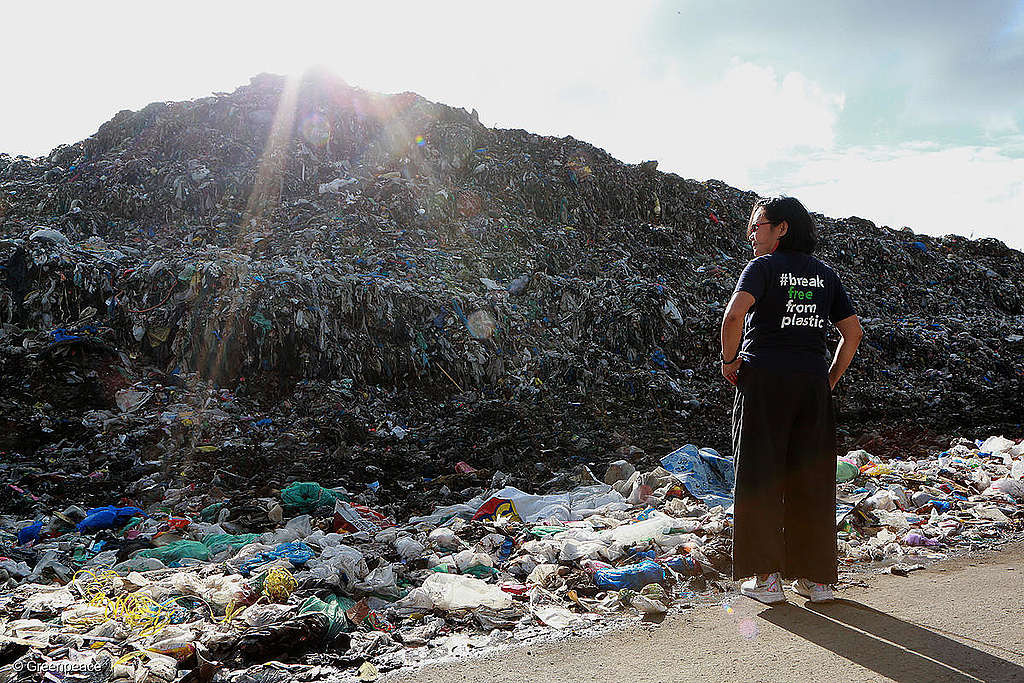
First in the United States and then in Europe, wherever measures to limit the use of non-essential plastics were being debated or already voted on, the petrochemical and plastic industry is stepping up to the plate.
Canada is no exception. As the federal government prepares to announce a ban on certain problematic single-use plastics, the coronavirus crisis is timely for the plastics industry lobbies who have started to make their opinions known through a series of opinion editorials (see an example here) in various Canadian media outlets.
Plastic, a guarantee of hygiene?
What the industry is asserting, wearing its vested interest on its sleeves, is pretty much the same everywhere: “single-use plastics offer unique advantages when it comes to ensuring hygiene, safety and preservation against contamination to protect consumers.”
Well… this is more than a bit misleading. What we know, as outlined in our blog here, is that there’s no substitute for proper sanitation and that contamination can occur on any surface, regardless of whether the material is single-use or reusable.
Let us remember that the idea that disposable plastic guarantees impeccable hygiene is an idea put forward first and foremost by the industry. It’s a marketing argument, or, as Phil Vine, journalist and communication specialist at Greenpeace New Zealand, said recently “unless you are talking about the medical-grade stuff, there is nothing intrinsically sanitary about plastic”.
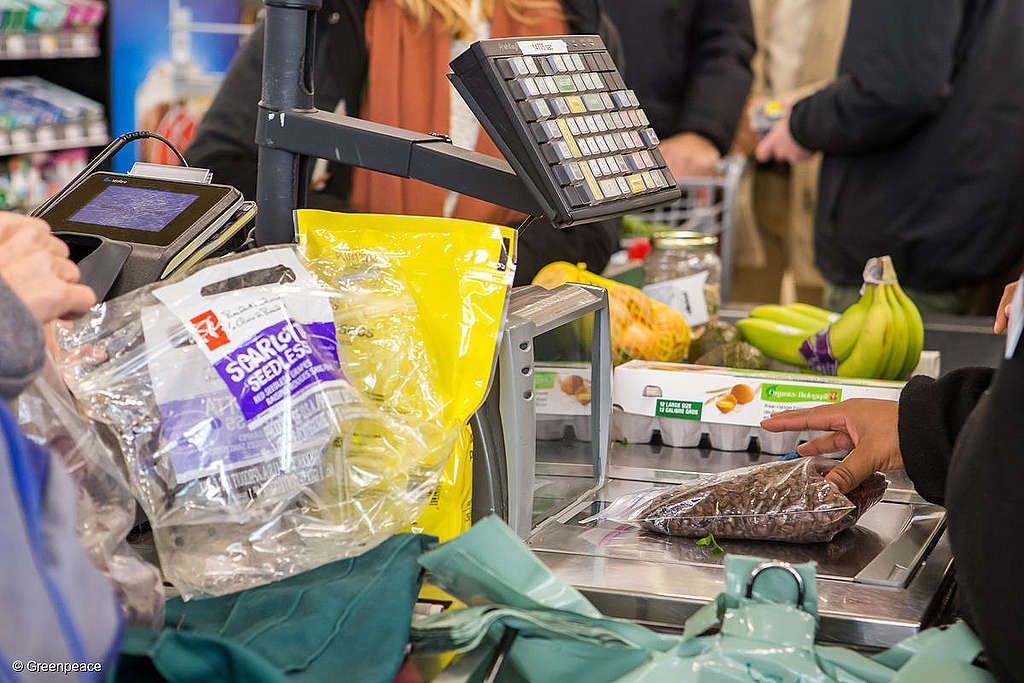
Keeping it safe while avoiding waste
Aren’t there solutions out there that would make it possible to cut our reliance on the billions of styrofoam trays, utensils, plastic bags, disposable cups and other non-essential packaging produced each year while ensuring hygiene and safety for consumers?
The answer is yes. When bringing our own containers cannot be allowed, the option of reusable and returnable containers provided by businesses is a logical one. First of all, because the cleaning and disinfection of the containers are carried out by professional-calibre processes. Secondly, because the number of people who have had contact with the container following disinfection can be limited.
This type of solution is already being implemented around the world. What we need now is to invest in new systems that rely on true circularity and ensure the health of all of us, and our planet.
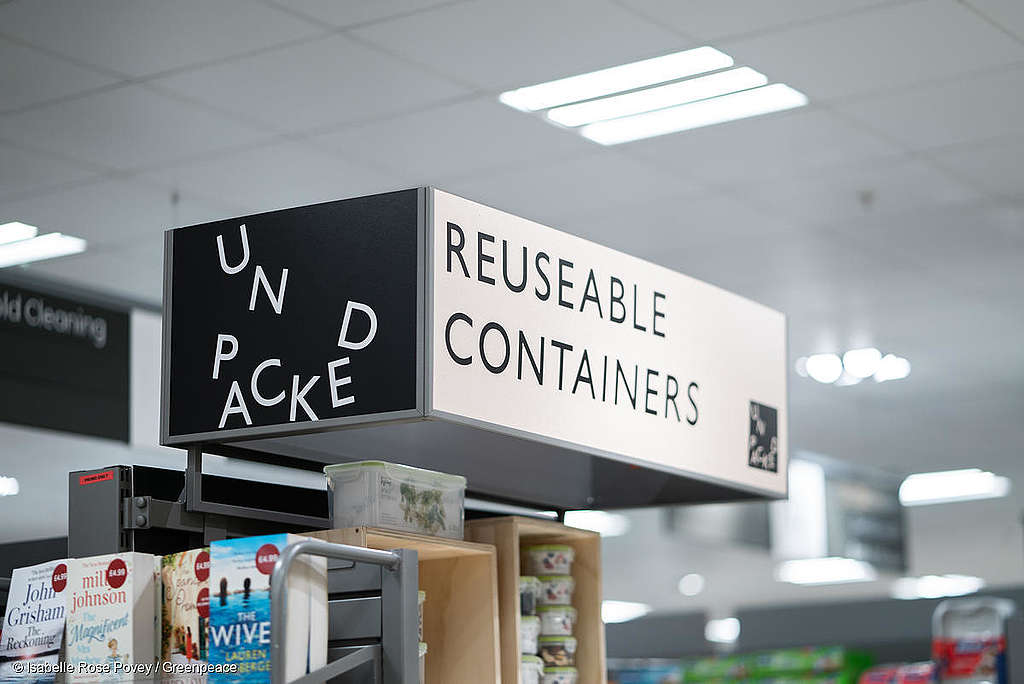
Crises are an incubator for innovation
Public health is a top priority at this time, and both zero-waste grocery stores and larger companies who are on the path of single-use plastic reduction have been able to adapt to ensure the safety of their customers and employees.
Several zero-waste stores across Canada including LOCO or Vrac & Bocaux grocery stores in Montreal or The Soap Dispensary and Nada in Vancouver have made various adjustments to their usual business models such as limiting the number of customers in-stores and setting up sanitation stations with store staff filling containers with bulk on site to reduce customer interaction with bulk food. They also set up online ordering services for pick-up or home delivery in returnable containers or bags made of post-consumer recycled paper. Customers can return the reusables containers upon pick up or delivery of their next order. This way, no unnecessary waste is created.
Prior to the existing health crisis, the LOOP Store began piloting a reusable container product delivery and collection program in various cities around the globe that employs a similar model.
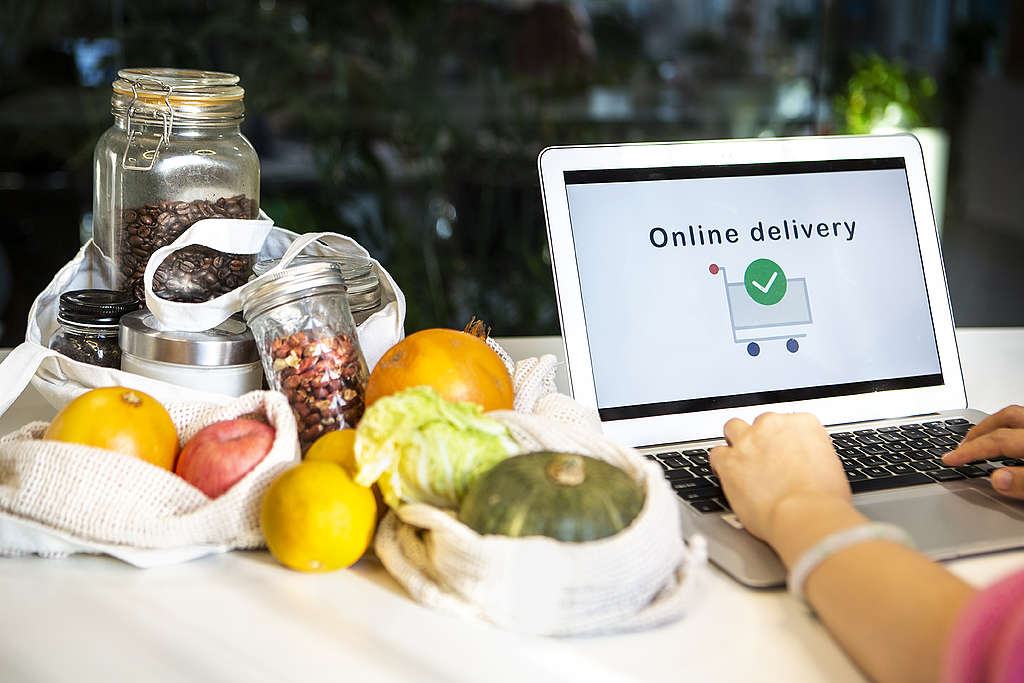
For coffee shops and take-out restaurants, which are major generators of plastic waste, the reusable-returnable model could well lead to a revolution once the conditions are in place for a reopening. To avoid the production of billions of disposable cups each year worldwide, several initiatives are already in the expansion phase, such as Vessel cups (United States), La Tasse (Quebec), and Muuse (Hong Kong, Singapore and San Francisco).
On the food take-out side, companies like reCircle, a system of returnable food containers available in Switzerland, can help reduce various types of unnecessary single-use items. Given the global plastic crisis, it’s important that the plastic industry isn’t getting the last word on what product delivery should look like.
We can must do better
Given the scale of the global plastic pollution crisis, it is important to make a voice other than that of the industry heard. In the midst of the health crisis, some major grocery chains, for example, continue to allow their customers to bring in reusable bags by applying increased precautionary measures. It is entirely possible to stay the course towards plastics reduction by rethinking the process, not the reusable alternative.
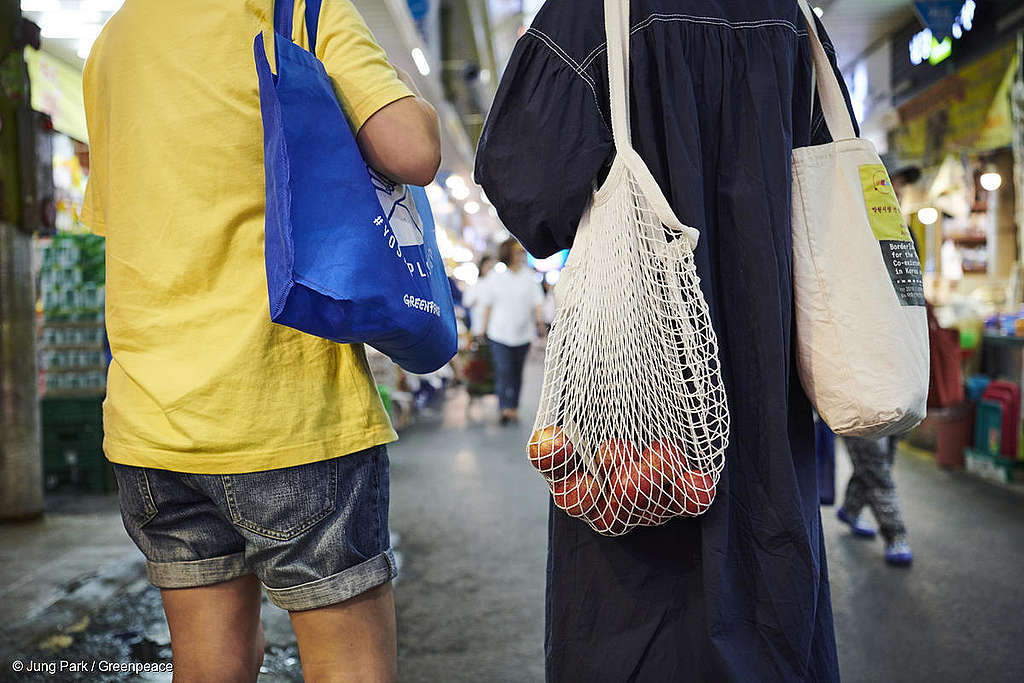
What this health crisis shows us is that in the face of challenges of such magnitude as the one we are going through, humanity is capable of innovation. Considering plastic production is on the rise, and that it represents a main expansion area for the oil and gas sectors, it is essential to cut our reliance on single-use plastic if we want to respond to the climate and plastic pollution crises.
Now should be the time we stop listening to the petrochemical industry’s sirens and their empty promises and start amplifying the efforts of people working for positive changes.
This article is the latest in our series of blogs about zero waste and health. See the previous articles Health and the Reuse Revolution: Zero waste living in a time of crisis, Health and the Reuse Revolution: Is disposable safer than reusable? Let’s consult the science, and Health and the Reuse Revolution: How governments and corporations can think beyond plastic to a green and just future.
Note: Your best source of information to protect your health and the health of others from COVID-19 remains official sources, such as these Government of Canada public health education resources.


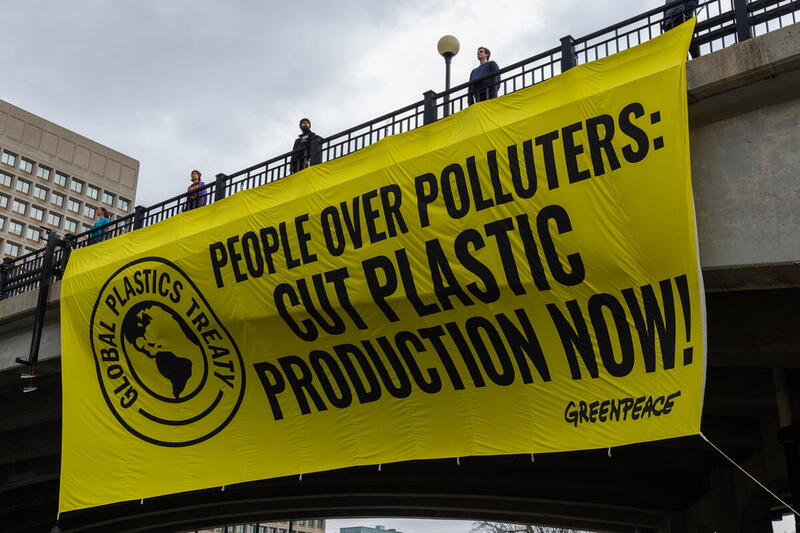
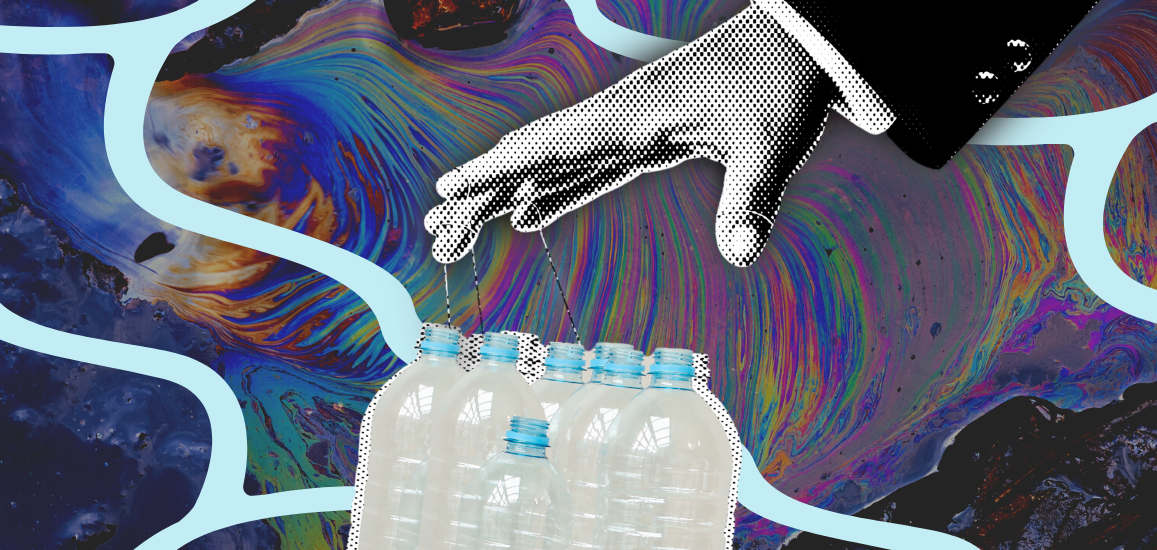
Discussion
Regarding plastic - no more throw away PPE and all kinds of other medical supplies made from plastics. Why not use clothing that can be washed, sanitized, sterilized etc. Why not use glass petri dishes, pipettes, needles? Why not use glass dishes and flatware - instead of all the plastic used in hospitals system. I would like to see a transition away from all the throw away medical supplies.
Why are the corporations that produce the problematic plastic garbage not held to account for the reuptake into some sort of legitimate "re-use" ....recyling in north america is a failing venture and we seem asleep at the wheel. Just wondering... my sentiment is he who produced it is ultimately responsible ?